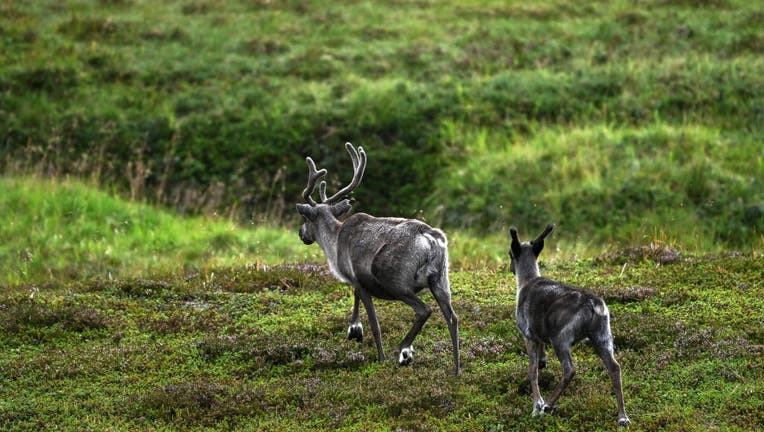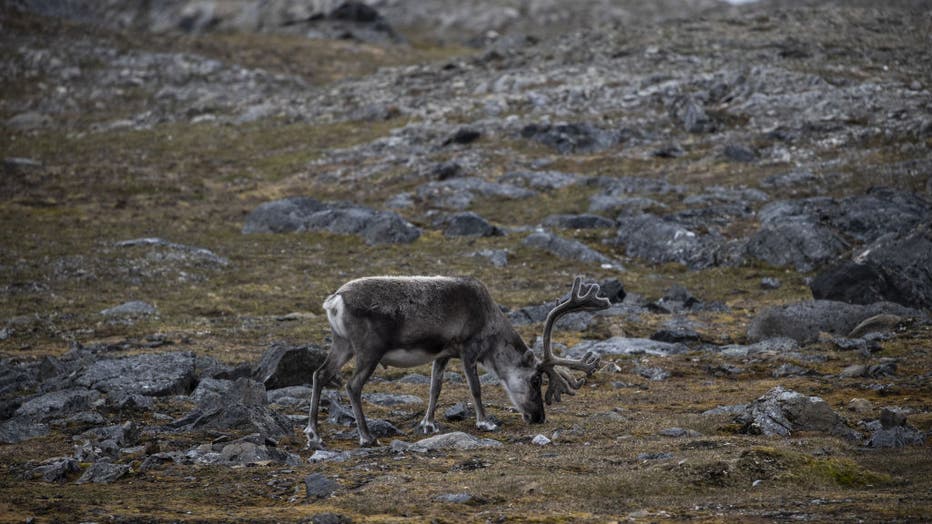Norway rebuilds reindeer fence at border to stop the animals' costly strolls into Russia

HAMMERFEST, NORWAY - AUGUST 18: Reindeer during the 10th Arctic Race of Norway, Stage 2 a 153.4km stage from Alta to Hammerfest on August 18, 2023 in Hammerfest, Norway. (Photo by Luc Claessen/Getty Images)
COPENHAGEN, Denmark - Norway is rebuilding a dilapidated reindeer fence along its border with Russia in the Arctic to stop the animals from wandering into the neighboring country — costly strolls for which Oslo has to compensate Moscow over loss of grassland.
Norwegian officials said Thursday that so far this year, 42 reindeer have crossed into Russia seeking better pastures and grazing land.
The reindeer barrier along the Norway-Russia border spans 150 kilometers (93 miles) and dates back to 1954. The Norwegian Agriculture Agency said a stretch of about 7 kilometers (4 miles) between the Norwegian towns of Hamborgvatnet and Storskog would be replaced.
The construction, with a price tag of 3.7 million kroner ($348,000), is to be completed by Oct. 1, the agency said.

NORWAY - JULY 21: A reindeer is observed during the expedition of the Turkish Scientific Research team near Svalbard Islands, in the Arctic Ocean in Norway on July 21, 2022. The scientists have returned to Istanbul after the 22-day expedition. Data w
The work is a challenge, however, as the workers have to stay on the Norwegian side of the border "at all times" during construction, "which makes the work extra demanding," said Magnar Evertsen of the agency. If a worker crossed into Russian territory, without a Russian visa, that would amount to illegal entry.
The reindeer crossings bring on a lot of additional bureaucracy. Russia has sent two compensation claims, the agency said.
One claims is for nearly 50,000 kroner ($4,700) per reindeer that crossed into Russia to graze in the sprawling Pasvik Zapovednik natural reserve in the Russian Murmansk region. The other claim is asking for a lump sum of nearly 47 million kroner ($4.4 million) in total for the days the animals grazed in the park, which consists mostly of lakes, rivers, forests and marshland.
The agency said that of the 42 animals that entered Russia this year, 40 have been brought back to Norway and the remaining two are expected to come back soon.
The returned animals have since been slaughtered out of fear that they may wander back to Russia, Evertsen said. The Norwegian Food Safety Authority may demand the carcasses be destroyed for safety reasons, the government body said in a statement.
The reindeer are herded by the Indigenous Sami people in central and Arctic Norway. Formerly known as the Lapps, the Sami are believed to have originated in Central Asia and settled with their reindeer herds in Arctic Europe around 9,000 years ago.
They traditionally live in Lapland, which stretches from northern parts of Norway through Sweden and Finland to Russia. Across the Arctic region, the majority live on the Norwegian side of the border.

